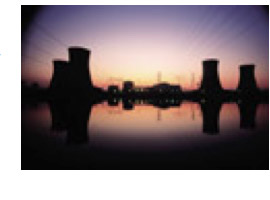| The revised chemistry guidelines will reflect 14 years of technology updates since the original edition.
EPRI is revising the Service Water System Chemistry Guidelines to incorporate technical advances and operating experience related to selecting chemicals for treating microbiological growth, macrobiological growth, corrosion, suspended solids fouling and scaling in nuclear power plant service water systems. Service water systems satisfy cooling water needs for both safety-related and non-safety-related heat exchange equipment, including closed cooling heat exchangers, diesel generator coolers, residual heat removal heat exchangers, lubricating oil coolers, bearing coolers and room coolers.
 The updated guidance also responds to recent regulatory interest in service water systems. In Generic Letter 89-13, for example, the U.S. Nuclear Regulatory Commission laid the groundwork for forthcoming evaluations of nuclear service water systems at U.S. nuclear power plants. The updated guidance also responds to recent regulatory interest in service water systems. In Generic Letter 89-13, for example, the U.S. Nuclear Regulatory Commission laid the groundwork for forthcoming evaluations of nuclear service water systems at U.S. nuclear power plants.
The revision, which will replace the original guidelines issued in 1996 (TR-106229), will be released in 2012. Meetings will be held both inside and outside the United States to ensure a wide range of perspectives are factored into the revision.
The review committee has identified several high-priority technical topics to be addressed in the revision:
- Expand the scope to include open cooling systems (circulating water systems)
- Develop limits and/or performance measures
- Incorporate newer technologies and EPRI guidance (such as the Service Water System Corrosion and Deposition Sourcebook and the Microbiologically Influenced Corrosion Sourcebook)
- Address silting and bio-fouling issues
- Produce the guidelines document in a format similar to the Closed Cooling Water System Chemistry Guidelines.
One technical gap that will be addressed in the revision concerns microbiologically influenced corrosion (MIC). Significant operating experience related to MIC has been documented since publication of the original guidelines. The revision will provide examples of the MIC corrosion mechanism and describe successful treatment options.
For more information on the revision effort, or to join the revision committee, please contact Joel McElrath at 650-714-4557 or jmcelrath@epri.com.
|